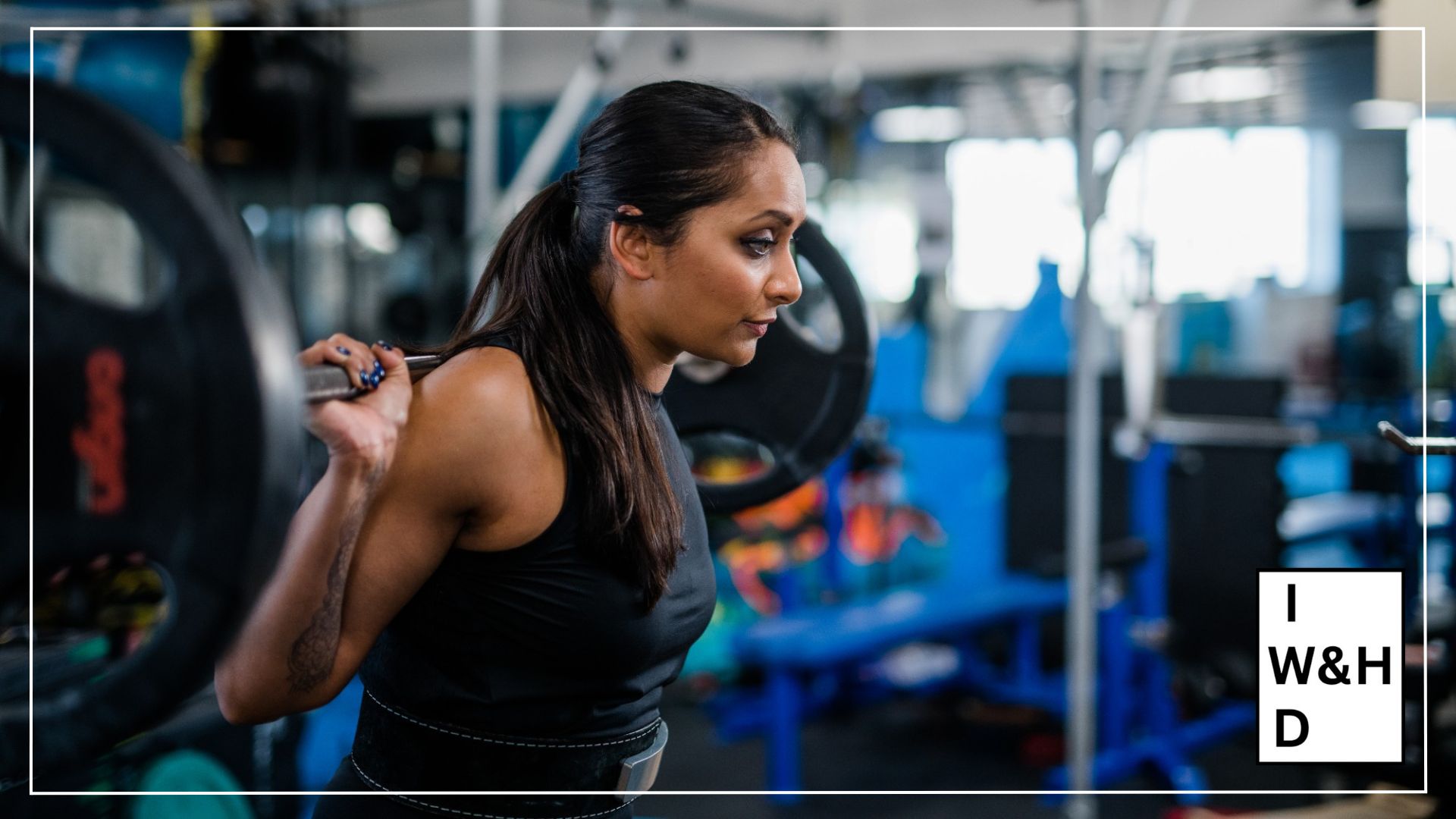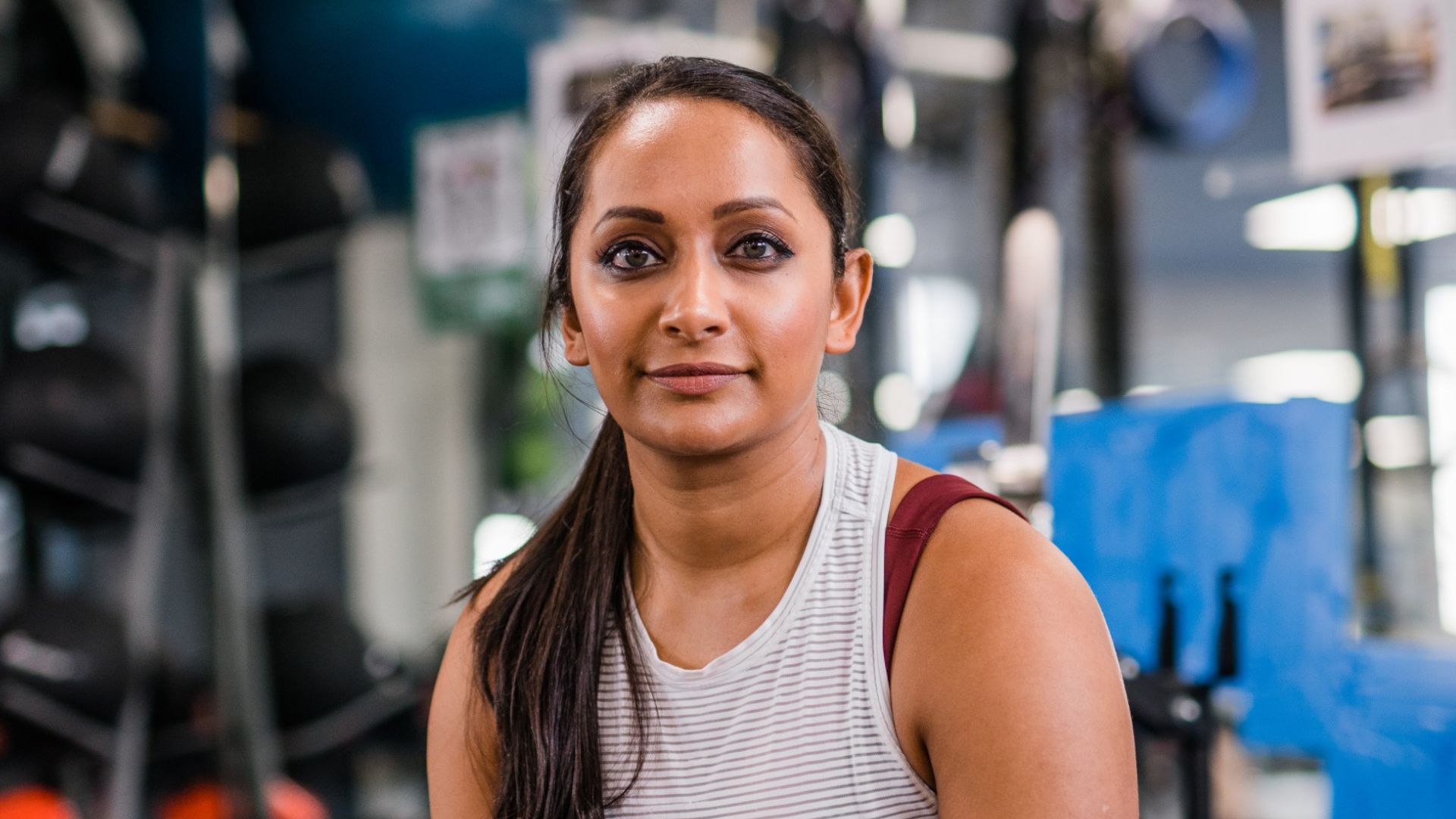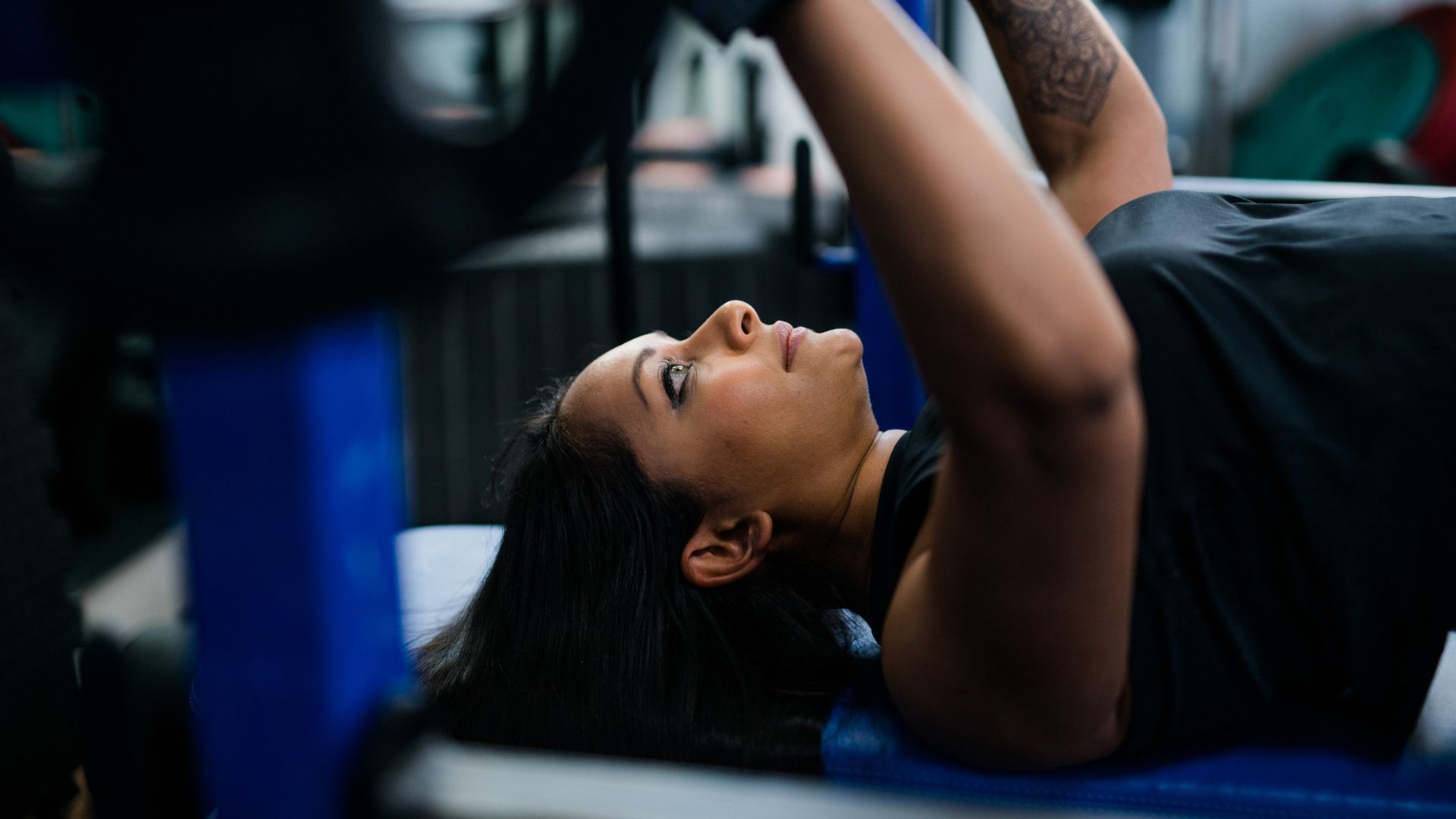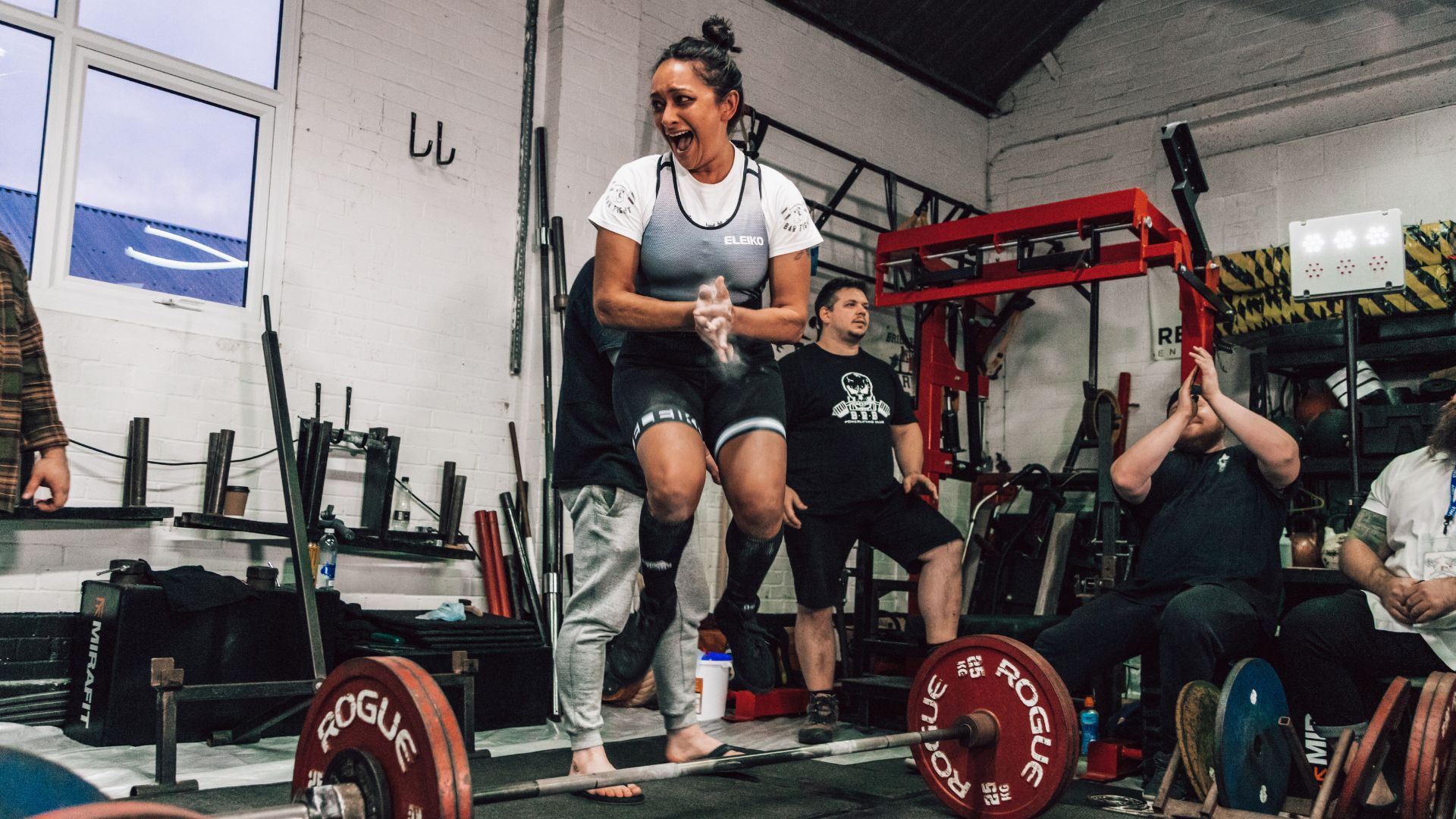How Exercise Changed My Life: "Knowing what I'm capable of doing makes me so confident"
Poorna Bell competed in her first powerlifting competition at the age of 38, here she tells woman&home how it happened


There are still so many barriers to be broken down when it comes to our feeling of belonging in sport as women, but in woman&home's new series, How Exercise Changed My Life, we meet those who are doing just that after changing their lives through sport after the age of 40, defying stereotypes and ageist narratives about what we are truly capable of at any age.
“Toning, weight loss, and so on? ‘None of that,’ I said sharply, and my tone made him look up. ‘I want to get strong,’” writes Poorna Bell in her book Stronger: Changing Everything I Knew About Women’s Strength. Here Poorna is describing the moment she asked for a personal trainer at her local gym, but really, it was “walking between worlds” for the award-winning journalist, author, speaker, and now-competitive powerlifter, as it had taken 34 years for her to say it.
Powerlifting is a strength sport consisting of three key lifts: squat, bench press, and deadlift. Much like its twin, Olympic Weightlifting, competing athletes aim to lift the maximum amount of weight on a barbell in a single lift.
Poorna is one of these athletes, having competed in several powerlifting competitions across the UK as a member of Barfight Team. But while Poorna may be comfortable under the barbell today, she competed in her very first powerlifting competition at the age of 38 and started strength training at 34 for the first time. Now 42, she reflects on what it took to get here.

“I had never really done any form of weight or strength training until I took it up in mid-2016,” she tells me over the phone. “The main thing that I had been doing before that was some gym work and a lot of running. What I realized was, I didn’t really have any physical strength. I could run away from a burglar but I couldn’t lift heavy objects around the house.”
It was a problem that didn’t feel as present when she was growing up, but after Poorna’s husband Rob passed away in 2015, it became symptomatic of a wider issue. “I think [Rob’s passing] created a massive gap in my life, not just in terms of the mental and emotional side of things, but from a practical point of view. I realized that I’d never really prepared myself for doing physical things. Society just prepares you for the expectation that a man will do all of the heavy work around the house - whether that’s your father, a male friend, or a brother. It’s such a heterosexual ideal but if you get married, the pattern continues.”
Poorna got a personal trainer (PT), thinking this would be the most sensible way forward. “I was really lucky to have a gym next to the building of my office. Everything was very easy, if it had been harder than that, I probably wouldn’t have followed through,” she says.
Sign up to our free daily email for the latest royal and entertainment news, interesting opinion, expert advice on styling and beauty trends, and no-nonsense guides to the health and wellness questions you want answered.
"Society just prepares you for the expectation that a man will do all of the heavy work around the house...It’s such a heterosexual ideal but if you get married, the pattern continues."
After an interaction with the receptionist who presumed her goals would be around changing her body size, she did find someone to help with her goal of getting strong. “I met this really sweet, really humble personal trainer who introduced me to all of those moves, crucially. That was the first time I’d ever handled a barbell. There were other strength exercises in there but he really helped me be more confident in the weights section and not to feel overly apologetic about being in that space.”
It’s a move she recommends to anyone interested in taking up strength training. “Very often people will go for a PT and assume that all PTs are the same and they’re not. Some of them will have particular specialisms. Anyone who is considering strength work and maybe taking it up a little older, you need someone who specializes in it because you may need someone who can work alongside injuries you might have and adapt things around your body,” she says. “It’s like learning a new skill, like learning a new musical instrument. You need someone who is going to have very specific knowledge of what they are teaching you.”

Read more from the series:
Importantly though, a discussion about your goals should not include your weight, unless you specifically bring it up. “If I’m not coming to a PT with an aesthetics goal and a PT pushes that on me, that’s a huge red flag,” she says.
While weight loss is a valid goal, it’s something that’s often pushed on women as the primary motivator for exercise. “Some PTs will mention it even if you haven’t and they’ll talk about things like nutrition plans, even if you’ve never brought it into the equation. I feel like if you do want that, you need to proactively say it rather than feeling like it’s something that has to go hand in hand with learning how to move your body in a different way.”
As a sport focused on strength rather than aesthetics, powerlifting goes against this narrative, Poorna says. “It seemed to me like something that would be really fun and really manageable. Instead of having to focus on nutrition, doing cardio, rather than it being about weight loss, the entire goal is to be as strong as you could possibly be. To remove the focus of body size and weight off the table was such a liberating thing.”
"To remove the focus of body size and weight off the table was such a liberating thing."
By its nature, powerlifting is a challenging sport - both physically and mentally - with athletes in competition only allowed three attempts to lift their heaviest weight. So for those who make the sport part of their lifestyle, “it’s about coming back to the thing you’ve failed at and trying again,” Poorna says. “That’s the whole point. [Powerlifting is] defined as an upward trajectory that you move through even though you know the circumstances might be challenging.”
When I ask what Poorna’s proudest moment has been so far, she says simply, “Not giving up on a lift. In the beginning, I used to be so scared of it. You’re handling the heaviest weights your body can take and you really don’t know if you can do it. When you’re very new to lifting, there will be times when you’ll just give up, you’ll feel mentally uncomfortable, and so much of the mental exertion is believing you can do it.”
Poorna pinpoints one key moment for her that describes this perfectly. At the end of 2021, she completed a 130kg deadlift in a competition - a lift she’d previously failed a couple of years earlier. But it wasn’t only this, after catching Covid early in the pandemic, Poorna had been dealing with long Covid for about 10 months. A diagnosis she thought would make stepping into the gym again - let alone a competition - almost impossible.

“I’d come to terms with the idea that I might never lift weights again. The fact that I was at a competition, which during those months I didn’t think was going to be a possibility, and I found myself stronger than I was a few years before, was a really important moment,” she says.
“Our brains trick us all the time and try to convince us this isn’t something we could possibly do. If you are someone who struggles with self-doubt or self-worth, I think it’s such a good sport for that because it basically helps you reinstate your self-worth.
“It helps provide you with weekly, if not daily, evidence that you are always going to be able to do more. You are stronger than your brain is telling you you are.”
"You are stronger than your brain is telling you you are."
And with this, over time, has come life-changing confidence. “[Powerlifting] has completely changed how I inhabit my body and how I feel toward it,” she tells me. “Knowing what I’m capable of doing makes me so confident with my body language when I’m in a room - whether that’s meeting people, having a conversation with someone for the first time - I feel completely in unison with my body and my mind.
“The biggest change has been when I’ve been in male-dominated spaces. I know that I don’t feel the same as I did before. I used to shrink. My shoulders were round, I had to be as small as possible, and take up as little space as possible. Now that’s no longer the case. It’s something I notice in terms of how people react to my body language when I’m in a room.”
That’s not to say she feels confident all the time, but powerlifting has empowered her to take up more exercise outside the gym.
When Poorna and I speak, it’s actually a tennis lesson she’s just getting back from. “This year, I’ve decided that I want to try a few different sports,” she explains. “I’m still powerlifting and doing the training around that. But most recently I’ve taken up tennis and started Brazilian jiu-jitsu. I’ve never done martial arts before. It’s something that really scares me and I’m really bad at it because I’m a beginner and I haven’t learned enough to feel comfortable with it.”
Where others might grimace at this idea, the thought of throwing themselves into the deep end like this, it may not surprise you to know that something better almost certainly lies on the other side. “Especially as you get older, it can be really intimidating trying something new but you get so much from being able to do it. You will find something that you really love doing that’s just for you, that has nothing to do with your family or anyone else, and in that slight discomfort of trying something new, I think it makes you more open to learning in general across other areas of your life.”
Tips for getting started with powerlifting and trying something new
We have a guide on how to start weightlifting, and Poorna also shares her advice on getting started with powerlifting at any age:
- Get a personal trainer if you can: “You absolutely need someone to slightly push you out of your comfort zone but it should be someone who makes you feel good about yourself and gives you goals within that to improve yourself.”
- Set a deadline: When it comes to doing something new that may be a little intimidating, Poorna says she sets herself a deadline - even if it’s a small one. “For me, setting myself a date really works. Whatever happens, no matter how many excuses I give myself, I have to start or at least do one class by a particular date.”
- Break down your goal: “I was listening to Sharoo Izard, who is a behavioral change specialist, and she was saying that when you are changing behaviors, it can be really overwhelming to think about the overall goal. If you break it down into a decision you can make that you will be proud of in a week’s time, that’s manageable.”
- Phone a friend: “Getting accountability from friends also really helps. I’ve found that getting a friend to come along with you can help overcome any intimidation you might feel.”
- Try lots of new things: “I think there’s something to be said for working out what your natural abilities might be. What I’ve learned trying new sports is that there will be things I’m naturally predisposed to be good at doing, which is a lovely surprise and very life-affirming. Then there will be things I just don’t know anything about.” The only way to find out is to do it.

Grace Walsh is woman&home's Health Channel Editor, working across the areas of fitness, nutrition, sleep, mental health, relationships, and sex. She is also a qualified fitness instructor. In 2025, she will be taking on her third marathon in Brighton, completing her first ultra marathon, and qualifying as a certified personal trainer and nutrition coach.
A digital journalist with over seven years experience as a writer and editor for UK publications, Grace has covered (almost) everything in the world of health and wellbeing with bylines in Cosmopolitan, Red, The i Paper, GoodtoKnow, and more.